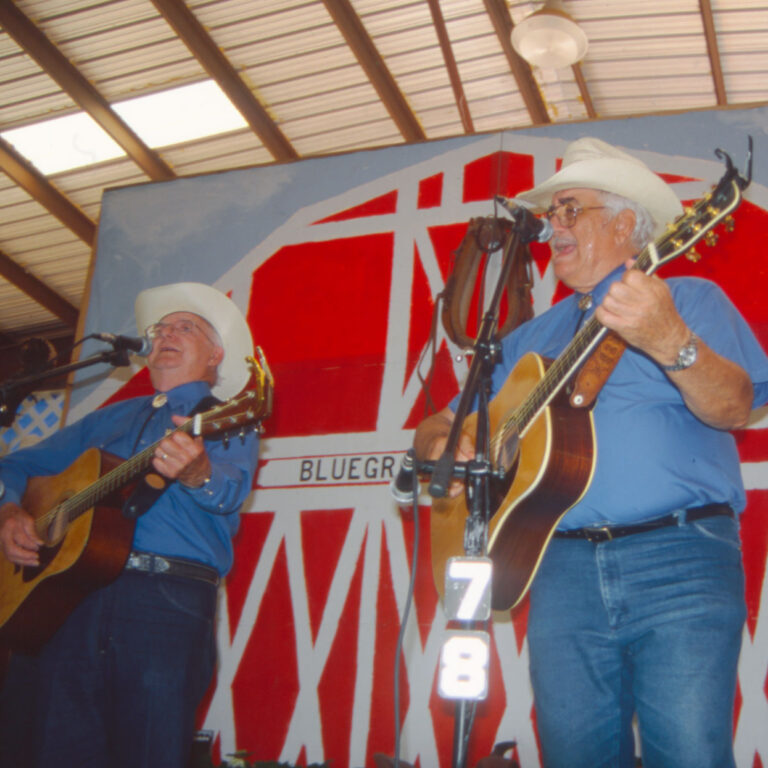Driskill Mountain is one of the top bluegrass bands in Mississippi, though the two senior members of the group live over the border in Louisiana. The band got its name several changes of personnel back. The senior members of the band are Adolphus Warren and Vic Watts, both of whom both sing and play guitar. Warren started the band long ago with the late Glen Carter, who was from around Driskill Mountain (the highest point in Louisiana), and who suggested the name for the band (Watts jokes that Driskill Mountain, at 535 feet above sea level, wasn’t there prior to the arrival of red ants). Warren and Watts are joined in the group by fiddler Tommy Moran and bass player James Ward, both of Bay St. Louis. Tim Hathorne of Hattiesburg plays dobro for the group and he is the only member who’s not retired. His work in offshore oil means that he misses a fair number of shows.
Warren didn’t have musicians among his immediate ancestors, and Watts had plenty: his mother who played accordion, one of her brothers who fiddled and another who sang and played guitar, and on his father’s side, a grandfather who fiddled. But Warren and Watts share quite a bit of background other than that. Both started out on Silvertone guitars, Warren’s ordered by his mother from a Sears catalog, and Watts’ given to him by an older brother in the army, who had bought it for $15. Both heard hillbilly music on the radio, then country and bluegrass in the late 1930s. That’s the era they look back to, and model much of their repertoire on—a time when country and bluegrass weren’t so different in their hillbilly roots and inherited elements, when both genres involved acoustic instruments, when country songs “still had a melody.”
Driskill Mountain’s repertoire reflects that broad love—there’s lots of gospel, and equal amounts of older country and bluegrass. Songs like “Darling Corrie,” “Cabin on the Hill,” and “I Don’t Need No Rockin’ Chair” are performed next to “New River Train” and “On and On,” then giving way to “I Saw the Master,” and “I Know a Man Who Can,” and all are in roughly the same style, and all feel equally right. They just like songs that “say something to you.”
The group plays around 100 shows a year, mostly in Mississippi and Louisiana, but they also perform in Arkansas, Tennessee, Alabama, Georgia, and Florida. They enjoy playing at bluegrass festivals and in church, and are also a hit at New Orleans’ Jazz Fest, though they don’t choose to play in clubs where alcohol is served. Watts says that they have “a hobby that pays for itself.”
– Chris Goertzen

